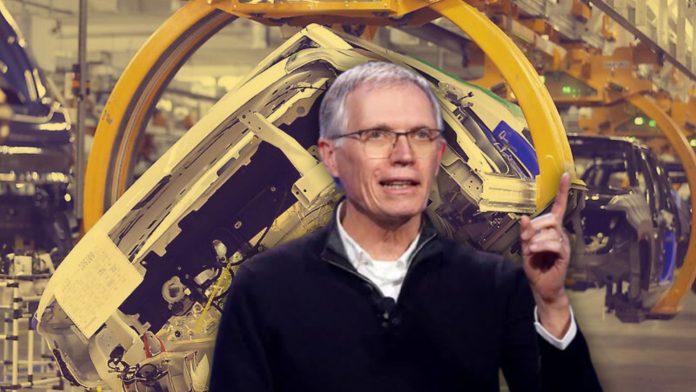Stellantis has begun laying off approximately 1,100 workers at its Warren Truck Assembly Plant in Michigan following the end of production for the Ram 1500 Classic pickup. The layoffs started on October 12 and are part of the automaker’s broader cost-cutting efforts. The Warren plant will continue to produce the Jeep Wagoneer and Grand Wagoneer models, but the decision to discontinue the Ram 1500 Classic marks the conclusion of a truck model that had been in production since 2009.
Stellantis warned that it might cut up to 2,450 jobs, so the actual layoffs, totaling less than half of that estimate, were anticipated. The company announced that it is laying off employees as it transitions to the new 2025 Ram 1500 Tradesman. This model will serve as the brand’s entry-level pickup and will roll off the production line at the nearby Sterling Heights Assembly Plant.
The layoffs come during a period of ongoing labor tensions, with the United Auto Workers (UAW) union releasing a video in mid-October criticizing Stellantis CEO Carlos Tavares for backing away from labor commitments made in previous contracts. The union has authorized a strike against Stellantis, and the automaker is currently in a legal battle with the UAW over these strike threats.
In a separate cost-saving measure, Stellantis announced it will close its Arizona Proving Grounds by the end of the year. The Yucca, Arizona, facility, which spans 4,000 acres and employs 69 workers, is set to be sold as part of the company’s strategy to streamline operations. Stellantis purchased the facility from Ford in 2007 for $35 million and has used it for vehicle testing in extreme conditions.
Moving forward, Stellantis plans to use Toyota’s proving grounds in Arizona for future testing.
As part of its agreement with the UAW, Stellantis is offering affected employees special packages or the option to transfer to another facility. If workers decline these offers, the company may place them on indefinite layoffs, allowing them to receive pay and benefits for up to two years.
These layoffs and operational shifts are the latest in a series of headcount reductions across the industry, as automakers face mounting pressure to cut costs and adapt to the changing automotive landscape.




